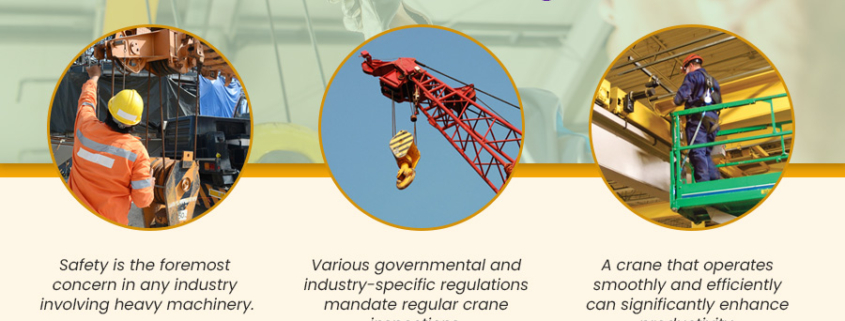Importance of Overhead Crane Repair Houston and Professional Testing
#1 Best Overhead Crane Repair Houston
Overhead cranes play a crucial role in various industrial settings, facilitating the movement and lifting of heavy loads with precision and safety. To ensure their reliability and safety, regular load testing and repair are essential practices.
Let’s delve into the significance of Overhead Crane Repair Houston and professional testing, exploring what it entails and why it matters.
Understanding Overhead Cranes
Before delving into the specifics of load testing and repair, it’s essential to grasp the fundamental role of overhead cranes in industrial operations. These cranes are designed to lift and move heavy objects horizontally within a confined area, utilizing a parallel runway system mounted on beams. They are distinguished by their ability to handle substantial weights efficiently, making them indispensable in sectors such as manufacturing, construction, and logistics.
Importance of Load Testing
Safety Assurance:
One of the primary reasons for conducting load testing on overhead cranes is to ensure their operational safety. Over time, various factors such as wear and tear, environmental conditions, and operational stresses can impact the crane’s structural integrity and load-bearing capacity. Load testing helps identify potential weaknesses or defects that could compromise safety.
Compliance Requirements:
Regulatory bodies and industry standards often mandate load testing for overhead cranes at regular intervals. Compliance ensures that cranes meet safety standards and operational requirements, reducing the risk of accidents and ensuring workplace safety.
Performance Evaluation:
Load testing serves as a performance evaluation tool, assessing the crane’s ability to lift loads within specified parameters. It helps verify whether the crane operates as intended, maintaining efficiency and reliability in daily operations.
Process of Load Testing
Preparation:
Load testing begins with meticulous planning and preparation. This involves reviewing manufacturer guidelines, identifying load capacities, and ensuring all safety protocols are in place.
Load Application:
During testing, incremental loads are applied to the crane to simulate real-world conditions. Measurements are taken at each stage to assess the crane’s response to increasing weights.
Monitoring and Analysis:
Throughout the testing process, engineers monitor critical factors such as deflection, stress distribution, and structural responses. Data analysis helps determine whether the crane meets performance expectations and safety margins.
Certification:
Upon successful completion of load testing, cranes are certified to operate within specified load capacities. Certification documentation is crucial for regulatory compliance and insurance purposes.
Common Repair Issues
Structural Fatigue:
Over time, structural components of overhead cranes can experience fatigue due to repetitive loading cycles. This can lead to cracks, deformations, or failures that compromise safety and operational efficiency.
Electrical and Mechanical Components:
Regular wear and tear affect electrical and mechanical components such as motors, brakes, and control systems. Routine inspection and repair ensure optimal functionality and reliability.
Alignment and Calibration:
Misalignment of crane components or inaccurate calibration of load sensors can affect performance and safety. Corrective measures include alignment adjustments and recalibration procedures.
Benefits of Professional Repair Services
Expertise and Experience:
Professional crane repair services offer specialized expertise and experience in diagnosing and addressing complex issues. They ensure thorough inspections, precise repairs, and compliance with industry standards.
Improved Safety:
Properly maintained cranes operate safely, minimizing the risk of accidents and workplace injuries. Professional repairs address potential hazards and improve overall workplace safety.
Longevity and Cost Efficiency:
Timely repairs and maintenance extend the operational life of overhead cranes, reducing downtime and costly repairs associated with neglect or deferred maintenance.
Conclusion – #1 Best Overhead Crane Repair Houston
In conclusion, Overhead Crane Repair Houston and testing are indispensable practices that ensure safety, compliance, and operational efficiency in industrial settings. By understanding the importance of load testing, the process involved, common repair issues, and the benefits of professional services, businesses can maintain reliable overhead crane operations while prioritizing workplace safety.
Whether in manufacturing plants, warehouses, or construction sites, the integrity of overhead cranes directly impacts productivity and safety standards. Investing in regular load testing and professional repair services not only safeguards personnel and assets but also enhances the operational reliability and longevity of overhead crane systems.
Implementing a proactive approach to maintenance underscores a commitment to safety and operational excellence, positioning businesses for sustained success in their respective industries.





